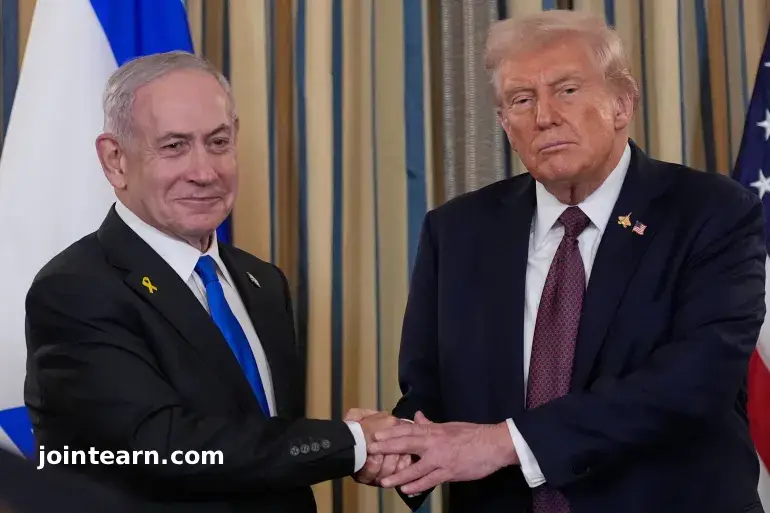
United States President Donald Trump has formally requested that Israel’s President Isaac Herzog pardon Prime Minister Benjamin Netanyahu, describing the corruption charges against him as “political” and “unjustified.” The letter, sent on Wednesday, signals Trump’s growing involvement in Israeli domestic politics and comes just one month after a fragile US-brokered ceasefire in Gaza took effect.
Trump’s Letter Highlights Netanyahu’s Leadership
In the letter, Trump praised Netanyahu as a “formidable and decisive War Time Prime Minister,” citing his leadership during the recent conflict in Gaza. The Gaza war, which claimed over 69,000 Palestinian lives, including at least 20,000 children, has drawn international scrutiny, with UN investigators warning of potential acts amounting to genocide.
Trump emphasized Netanyahu’s role in guiding Israel toward peace, claiming that the Israeli PM’s efforts complement US diplomatic initiatives, including expanding the Abraham Accords to additional Middle Eastern countries.
“I hereby call on you to fully pardon Benjamin Netanyahu, who is now leading Israel into a time of peace,” Trump wrote, urging Herzog to end what he described as politically motivated “lawfare” against Netanyahu.
Political Implications of Trump’s Intervention
Several Israeli media outlets published the letter, highlighting Trump’s willingness to directly influence Israeli politics. By pressing for a pardon, Trump appears to be rewarding Netanyahu for agreeing to the Gaza truce, while also reinforcing his support for right-wing leaders internationally.
Earlier this year, Trump backed Argentinian President Javier Milei with a $40 billion economic bailout, signaling a pattern of engagement with right-leaning governments.
During his remarks to the Israeli parliament, the Knesset, last month, Trump similarly called for an end to the corruption charges against Netanyahu, though this letter addressed President Herzog directly, emphasizing personal rapport and political alignment.
Netanyahu’s Ongoing Trial and Presidential Pardon Powers
While Israel’s presidency is largely ceremonial, the president retains the authority to grant pardons. However, because Netanyahu’s trial is ongoing, Herzog cannot issue a pardon until a verdict is delivered.
In response to Trump’s letter, the Israeli president’s office reiterated that any pardon must follow formal procedures. A spokesperson stated:
“The president holds great respect for President Trump… Without detracting from the above, anyone seeking a pardon must submit a formal request in accordance with the established procedures.”
Context: Gaza Truce and Regional Peace Efforts
Trump’s letter came shortly after the US-brokered ceasefire took effect in Gaza, following intense Israeli airstrikes and humanitarian restrictions. The truce represents a fragile pause in the ongoing violence and highlights Netanyahu’s role in negotiating temporary stability.
Trump framed the ceasefire as a historic achievement, claiming that it secures peace in the region for “at least 3,000 years,” despite historical timelines showing Israel’s modern establishment in 1948 and Zionist movement origins in the late 19th century.
Trump’s Broader Political Agenda
By advocating for Netanyahu’s pardon, Trump reinforces his image as a global champion of right-wing leaders and foreign policy achievements. This move aligns with his domestic messaging of fighting politically motivated investigations, echoing his own battles with criminal charges and election interference accusations in the United States.
Conclusion
Trump’s intervention on behalf of Netanyahu underscores the intersection of US foreign policy and Israeli domestic politics. While the Israeli president cannot act until the legal process concludes, Trump’s public support elevates the debate around Netanyahu’s corruption trial, the Gaza ceasefire, and broader regional peace efforts.
The letter also signals that both leaders are closely tied to ongoing diplomatic and political strategies in the Middle East, including expansion of the Abraham Accords and stabilization efforts in Gaza.


Leave a Reply